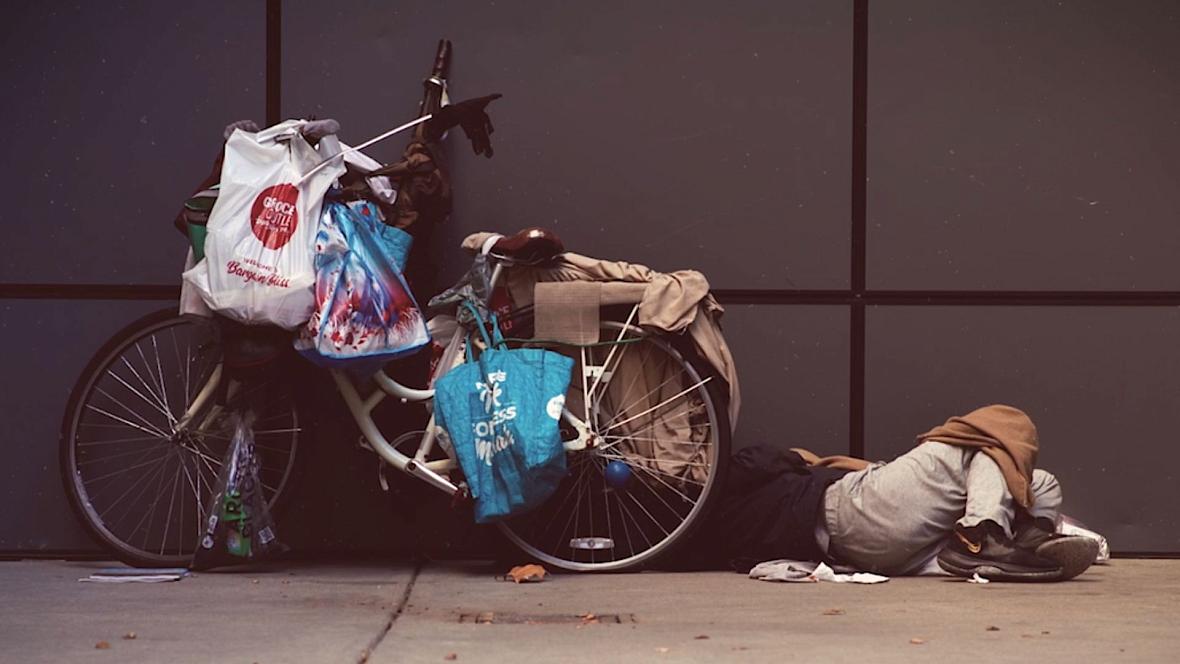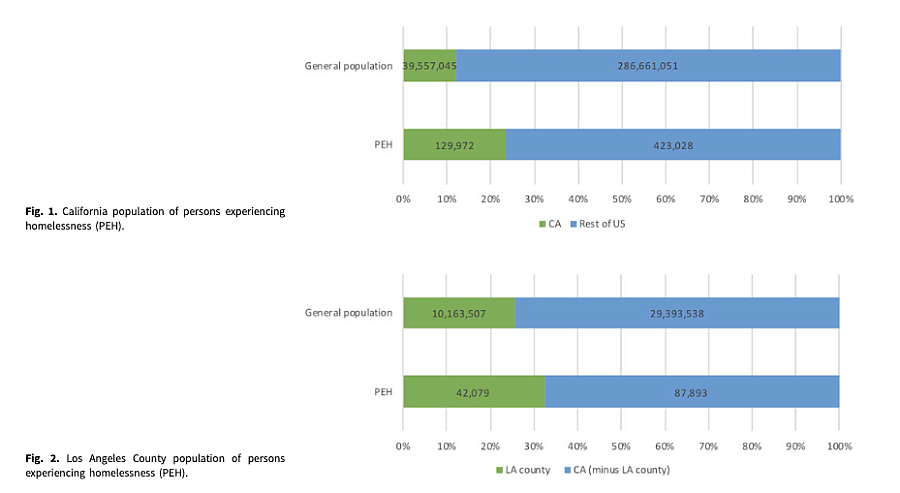Sick and Without a Home — The STD Crisis Among Homeless Latinos in California
The story was co-published with Univision 19 Sacramento as part of the 2024 Ethnic Media Collaborative, Healing California.

Rashel Cedeno de Abreu
On the streets of California's capital, we see an increase in encampments, symbolizing the homelessness crisis. But within each tent and every sleeping bag lies another crisis — silent, yet abundant.
Soundbite: An unhoused Person at a park
"I felt weak, I was very tired, I had a pain in my back, but it was internal... I said OK, something is going on here."
It's about sexually transmitted diseases, increasing across the state, disproportionately affecting those who lack safe housing and the resources to see a doctor for help.
Amidst both crises, there's Miguel Diaz, who adds his grain of sand to join efforts to make a positive impact on the lives of those who struggle with their health while experiencing homelessness.
Soundbite/Miguel Díaz at an encampment
"My job is to make sure they're healthy. Trying to give them a spark of life in their minds. That someone cares about them. With nothing in return."
Miguel works for the non-profit organization Golden Rule Services. He's a case manager. And the street is his main office.
He goes from camp to camp to hand out coupons to go to the doctor, tests to check for sexual infections, provides food, or just a helping hand.
Soundbite/Miguel Díaz
"We buy them clothes, we bathe them, so they won't feel ashamed to go to the doctor."
Miguel knows very well what it's like to be on the other side.
He was homeless when he was 15. Around the same time, he received his own diagnosis: he had contracted HIV. But neither of these things stopped him from moving forward.
Soundbite/Miguel Díaz
"When they told me I had 6 months to live, I said 6 months? And who are you to tell me that? God? So, I went to school to educate myself about my culture, about my illness. I went to nursing school."
Miguel has been living with the virus for 40 years.
Now his purpose, he says, is to help those who are going through what he's been through. But he explains that they are overwhelmed not just by the number of cases, but all the camps they have to visit.
Soundbite/Miguel Díaz
"There are many counselors in many agencies but they don't come here, to see what's happening."
And what's happening is that there are almost 10 thousand homeless people in Sacramento County alone, the one Miguel serves.
In all of California, it's estimated there are around 180 thousand people experiencing homelessness.
Soundbite/Miguel Díaz
"If you see a homeless person on the street, you say that person has a mental illness, is a drug addict, something happened to them. If you see more than 5 people like here, it means something is wrong with the programs, with the services."
Let's bring the second issue back in focus. According to the California Department of Public Health, sexually transmitted infections are on the rise.
By definition, they are viruses, bacteria, fungi, or parasites that people can contract through sexual relations, whether oral, vaginal, or anal.
The ones that worry the state the most are Chlamydia. Gonorrhea, Syphilis, and HIV.
They're all preventable, and all are treatable.
But if they're not paid attention to, they can cause more serious problems.
Soundbite Pablo at a park
"Sexually transmitted diseases are health conditions that everyone is prejudiced against. They don't want to be with someone with that disease, since it is infectious."
It's difficult to understand how many people on the streets have STDs. A study using 2020 data from the California Department of Public Health published by Cambridge University estimates that between 7 and 39% have ever been diagnosed with one.
Even more difficult is to find out how many of them are Latinos.
The point in time survey, which counts the number of people seeking housing services or sleeping on the streets, recognized that the lack of data is due to the lack of visibility.

California Department of Public Health, 2020.
Latinos were less counted, because they are more likely to avoid sleeping on the streets or in shelters.
They look for abandoned places or take refuge in churches. They sleep at relatives' homes, or in homes crowded with other people.
This limits their inclusion in the census. And affects the ability to investigate and understand how many suffer from the housing crisis in California.
Like the case of Pablo, we'll call him that to protect his identity.
Soundbite Pablo
"It's not easy to be in a country without the tools you need, especially when you're sick. It's difficult to deal with the language because I don't speak English."
He came to the United States through the border a year ago.
Due to his economic situation and lack of documents to legally work, he was sheltered in a church, where Miguel found him at his worst health condition. Pablo has HIV.
Soundbite Pablo
"They hospitalized me. I had air in my lungs. I was bad. If I hadn't paid attention to my situation, I would be in another place now."
He contracted it by having sex with another girl who had it. Pablo says, it's not her fault. He shares it more so that others take care and get tested for STD.
Soundbite Pablo
"Anyone can get it. We're all innocent. We're all victims of other victims and so on."
Through Miguel as his case manager, he managed to get the necessary treatment and now his HIV is undetectable.
From there, to getting a roof over his head. To improving his health and getting a job.
On his days off, he accompanies Miguel to give back a bit of the help he received.
But what needs to get done so Pablo's story is the same for every infected Californian?
Soundbite/Miguel Díaz
"Here we need more money, more funds, more people willing to go where I go. To get involved. Not just saying it. No."
Nats. Entering the clinic.
Bringing healthcare to the encampments. This is how Sacramento County decided to address it.
This is the county with one of the largest increases in sexual infections in the country.
Nats. this is the mobile clinic
This is the mobile clinic of Sacramento County. One of the services that opened with federal funds to bring healthcare providers to homeless camps, and thus offer STD testing. Here they have treated almost 300 patients with sexual infections since it opened in September 2022.
Antonio, who investigates these diseases and tracks positive cases, tells me that the challenge is to get homeless people to have access and to be tested frequently.
Soundbite Antonio Guzmán
"Homeless people have barriers to receiving medical attention. Barriers like not having a phone to make an appointment, transportation or even a bathroom to shower and feel comfortable seeing a doctor."
When the priority is knowing what you'll eat that day.
Soundbite Antonio Guzmán
"That may take priority over receiving medicine or a test for an infection."
Getting the tests done is crucial. They need to know the magnitude of the problem, because the longer it takes to treat it, the more infections spread.
Soundbite Antonio Guzmán
"The more we come, the more they trust us, we talk about the resources we offer and it makes a difference."
Removing the stigma from these diseases and offering wide options for testing and treatments, that’s what Antonio says can help control it.
Not just for people on the street. But for anyone.
And while the root problem, which is the lack of secure housing, is beyond the Department of Health's control, according to the study I cited at the beginning, this is an example of how preventing sexually transmitted diseases can be what keeps Californians from staying homeless.
The other challenge is that they only have one of these that goes out three times a week. Otherwise, they depend on other organizations and other workers like Miguel to help bring them their patients.
According to the study I cited at the beginning, and agreed upon by those providing these services, this investment can improve sexual health equity. And that a diagnosis should not be a barrier to securing safe housing.
Soundbite Antonio Guzmán
"If they are having sex, they are exposed. It is very important that they get tested anyway."
Soundbite/Miguel Díaz
"It affects us all. It is everyone's problem."
With every condom they hand out, or every blood sample, the message they want to spread is, no matter your housing situation, get tested.

This project is supported by the USC Annenberg Center for Health Journalism, and is part of “Healing California,” a yearlong reporting Ethnic Media Collaborative venture with print, online and broadcast outlets across California.

